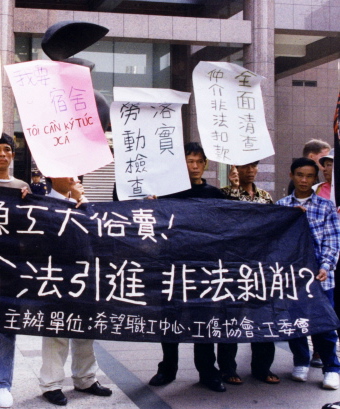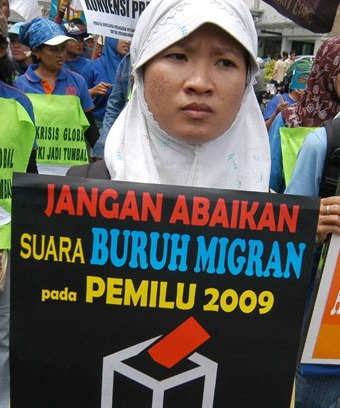Language around extramarital affairs on social media punishes women and lets men off the hook
Versi Bh. Indonesia
Nelly Martin Anatias
Pelakor is a word made, in a very Indonesian way, from three other words: perebut (thief), laki (man) and orang (person). Pelakor is used to describe a woman who steals another woman’s husband. It was first used in the 1990s when singer Mayang Sari was referred to as such after having an affair with Bambang Suharto, son of the then dictatorial president of Indonesia.
After a long hiatus, the term has made something of a comeback, at least on social media. What caused the comeback was the affair of two Instagram celebrities, or selegrams (selebrity Istagram).
I did a search for the term pelakor on Instagram and found almost 230,000 posts mentioning the word. I also did a search for the term pebinor, which combines perebut (thief), bini (wife) and orang (person) to describe a man who steals another man’s wife. I could only find 1164 posts mentioning pebinor, meaning pelakor is mentioned about 200 times more often than pebinor.
I think this suggests at least two things. First, that people find it acceptable for men to cheat on their wives. Second, that husbands are assumed innocent at the hands of seductive women.

Posting about pelakor
Posts about pelakor almost always suggest either that the ‘other’ woman is to blame for the affair, or that the wife is to blame. Almost no mention is ever made of the husband; he is presumed to be either acting in an acceptable way given that his wife must have deficiencies, or being seduced by another woman and therefore not to blame for the affair.
Below are two posts mentioning pelakor, and their English translations. To guarantee anonymity, I have removed account names and present users as @X1 and @X2.
@X1: Pelakor lagi dan pelakor lagi
It’s always about the pelakor.
@X1’s comment is in response to a post created by a woman I’ll call Lina. Through Lina’s posts, her followers learn about her husband’s affair with his student. @X1 empathises with Lina by suggesting that it’s not Lina’s fault her husband had an affair (or even her husband’s fault). The fault lies with the pelakor.
Another person’s post about pelakor blames the wife for her husband’s affair. Again, the husband is exonerated of any blame.
@X2: yang salah istrinya … bukan membela pelakor...tapi bisa jadi itu kesalahan dia sendiri
It’s the wife’s fault… not to defend the pelakor… but most probably it’s the wife’s fault.
@X2 clearly suggests that the wife is to blame for her cheating husband. Nowhere is there suggestion that the husband is to blame.
A third post, by @X3 below, provides some insight into why people think the wife is to blame for a husband’s extramarital affair.
@X3: istri sah nya pertama di ajakin ke tmpt suami nya kerja skrg yang agak ‘kampung’. Tp dia gk mw. Bilang nya ada apa di sana emangnya. Tp ternyata ini hasilnya. Ini sih info dr org RS tmpt suami nya kerja.
The wife was asked to move with her husband to a remote area. But she didn’t want to. She didn’t want to live without luxury. So, this is how it happens [as in, the husband having an affair]. This piece of information [the husband’s affair] is from an insider working at the hospital where the husband works.
@X3 blames the wife for the husband’s affair. If the wife had been obedient and moved with her husband, her husband would not have been ‘forced’ to have an affair. @X3 paints the wife as disobedient and not a loyal companion.
Where does blaming women, and not men, for extra marital affairs come from?
During the Suharto era (1966-1998), Indonesian women were envisaged only as dutiful wives and doting mothers. This belief persists today. To become a full adult, a woman must marry and have children. She then must sacrifice herself to them. As a mother, she is a caregiver. As a wife, she is an obedient and loyal companion (pendamping suami).
This sexist attitude has become so normalised that it is considered ‘common sense’ for many people in Indonesia. For many decades, this binary and asymmetrical notion of gender has been systematically imposed across Indonesia through such mediums as mass media and school curricula.
If a wife fails to be obedient, she is to blame for her husband’s adultery. Men are let off the hook. Their involvement is absolved linguistically and hence pelakor is a commonly used word but pebinor is not. Women are shamed, men are not.
The harmful side of Instagram
Many Indonesians use Instagram and other social media platforms to criticise women. They construct and reinforce the notion of a ‘good’ Indonesian woman. They have also manipulated this image to actively intervene in other people’s personal and private matters.
Indonesian women are still predominantly viewed as inferior to men and are thus marginalised. Men are privileged. The widespread use of pelakor demonstrates this on a linguistic level – pelakor is a sexist term used to punish women.
The men involved in extramarital affairs have been largely removed from the narrative of infidelity. In this way, language is used as a powerful tool to marginalise women while championing men, reinforcing superiority and inferiority, domination and subordination.
The New Order era is behind us, so it is time to call off patriarchal domination. Social media users should stop defining women in such a moralistic way while leaving the man out of the discussion. It’s time to educate ourselves and future generations about the imbalance in gender roles.
Many Indonesian women learn from Instagram what a ‘good’ woman should be. Numerous posts on Instagram tell women that they should never have sex outside marriage. But it tells men they can do this with no social consequences and this is not fair.
Nelly (nelly.martin@aut.ac.nz) is a researcher at Auckland University of Technology Indonesia Centre (AUTIC) and a lecturer at the School of Language and Culture, AUT, New Zealand.
*Note
Data collection was done from late 2017 to mid-2019. During this time #pelakor was still searchable on Instagram. However, as of January 2020, #pelakor is no longer searchable on Instagram, although a few accounts still use the term pelakor, pelakor, pelakorsexy, etc. It seems that Instagram has taken action to 'hide' posts using this term 'because the community has reported some content that may not meet Instagram's community guidelines'. Thank you to Jemma Purdey for highlighting this.















